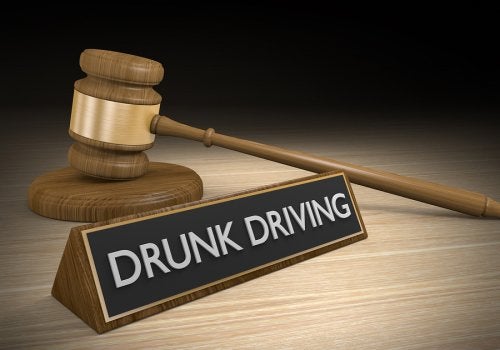-
Successfully Dealing with Your Ex-Spouse
Even after a divorce has been finalized, you can expect to continue communicating with your ex-spouse if you share children with him or her. For the sake of your children, it’s essential to keep your interactions with your ex civil, especially when the children are within earshot. If your divorce is still pending, consider talking to your family attorney in Owings Mills about designing the parenting plan to include preferred communication methods. For example, your family lawyer could specify that it is the responsibility of each parent to keep each other informed about any changes in the children’s school schedule, extracurricular activities, and health.
For some helpful tips on overcoming communication problems, watch this interview with a family therapist. She suggests treating the relationship with your ex just like a business relationship; you can be cordial with your ex even if you do not enjoy being in his or her presence. It’s also crucial to avoid using your children as messengers between you and your ex; instead, speak or text directly with your ex.
-
A Quick Look at the New DUI Law in Maryland
If you’ve recently consulted a lawyer in Owings Mills about legal representation for your DUI case, you may be informed of a new law that recently took effect this fall. DUI lawyers in Maryland have been evaluating the possible effects of Noah’s Law on their clients. The law was named in honor of a 24-year-old police officer in Montgomery County, Noah Leotta, who was killed during a routine traffic stop when a drunk driver struck him.
The new law mandates that any driver who is convicted of DUI or DWI is required to have an ignition interlock device installed. While ignition interlock devices are nothing new, what makes this law especially aggressive is that drivers can be required to use the devices for six months if a chemical test reveals a blood alcohol content (BAC) of 0.08% or higher-regardless of whether or not the drivers are convicted. If a driver refuses a Breathalyzer test, the interlock device must be used for nine months or the driver’s license will be suspended.

-
The Dos and Don’ts of Personal Finance for Divorcing Couples
Divorce may be a sensitive issue and a contentious process, but it’s important not to overlook the effects of divorce on personal finances. When you consult a family law attorney in Owings Mills, he or she might recommend that you see a financial advisor, especially if your marriage involves complex financial matters such as retirement accounts and home ownership. With the combined guidance of your family court attorney and financial advisor, you can secure your financial future while ending your marriage.

Do Make a New Budget
Transitioning from a two-income household to a one-income household is a significant shift for your personal finances. Talk to your family lawyer about what you might reasonably expect to receive or pay for child support and alimony. Ask your attorney for guidance on marital debts and assets, and then consult your financial advisor for assistance developing a new budget for your post-divorce life. Although divorce is an incredibly stressful time, it’s important to adhere to your budget and avoid splurging on expensive gifts for the kids or relaxing spa vacations for you. Keep your focus on building a secure financial future.
Don’t Make Assumptions About Property Division
The issue of property division can be particularly contentious. It’s best not to make assumptions about whether you’ll remain in the family home and retain ownership of joint savings accounts. Because every divorcing couple’s situation is unique, it’s best to consult your family law attorney. Bring along a list of all of your assets and debts to get a clearer picture of what the future might hold for your finances.
Do Look at the Big Picture
It’s all too easy to get fixated on one particular aspect of the divorce, such as staying in the family home or keeping the family pet. One benefit of hiring a family lawyer is that he or she will help you look at the bigger picture. With your lawyer’s help, you should develop a clear understanding of your personal finances, including all of your joint and separate accounts, retirement funds, and liabilities.
-
Sharing Legal Custody: Tips for Dealing with Disputes
After a divorce, children will primarily reside with one parent, even if both parents share custody. There are actually two different types of custody: physical and legal. Physical custody refers to where the kids maintain residency and legal custody refers to the right to make major decisions for the kids’ upbringing. If you share legal custody with your ex, you can speak with your child custody attorney in Owings Mills about strategies of successfully co-parenting.

Go to Mediation
The most effective way to deal with legal custody disputes is to prevent them from occurring. However, even if a dispute has already occurred, child custody mediation can help. You and the other parent will sit down with a neutral mediator, who will help you work toward a mutually agreeable solution that is in the best interests of the children. Mediators can facilitate discussions regarding the children’s religious upbringing, education, and healthcare, among other decisions.
Keep Each Other in the Loop
After the divorce, you may wish to avoid your ex completely, but this simply isn’t possible when you share children with him or her. Parents can reduce the possibility of a dispute by agreeing on communication methods and frequency in advance, and by agreeing to keep each other in the loop when something comes up. For example, if you receive updates from the school about soccer games, school pictures, or progress reports, you should promptly send the other parent a copy of the notice. Similarly, the other parent should let you know promptly if a child fell ill during visitation and needs to take antibiotics. For other types of medical treatment, such as administering psychiatric drugs, the permission of both parents is required.
Set Aside Emotions
When a dispute does arise, it’s helpful to spend a few days thinking about the matter before wasting more time arguing with your ex. This helps you get your emotions in check, think about the issue in a logical way, and develop ideas for compromising with your ex. Remind yourself that your only priority is to promote the best interests of your kids.
Put All Agreements in Writing
Secondary disputes can sometimes arise if one parent “forgets” about the agreement or claims that he or she never agreed at all. Written communication is always best. For instance, if you and your spouse agree to take the kids to different religious centers, sign a written agreement that neither of you will disparage the other religion in front of the kids.
